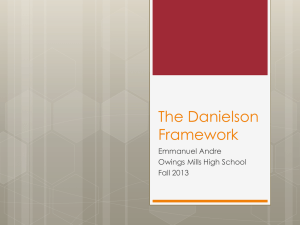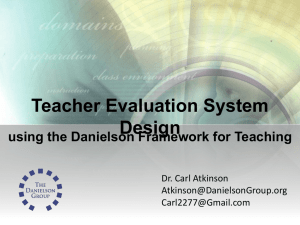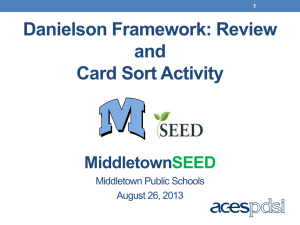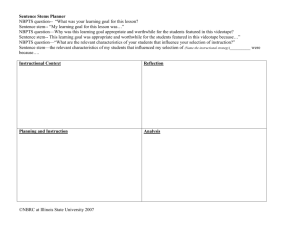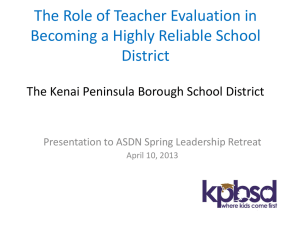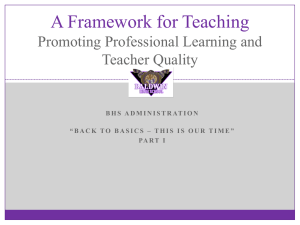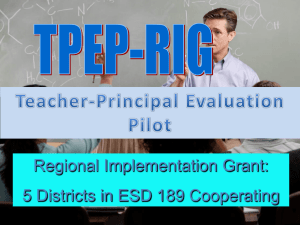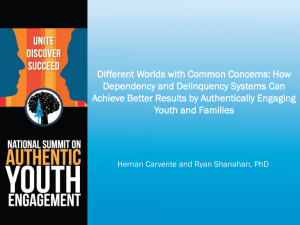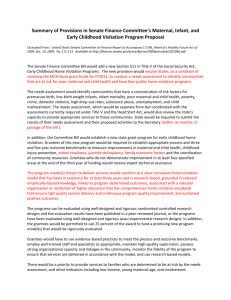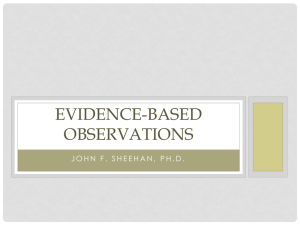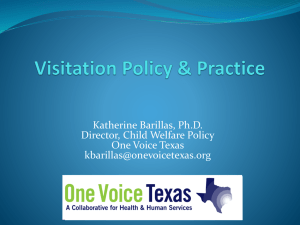Slides from optional information sessions of teacher evaluations
advertisement
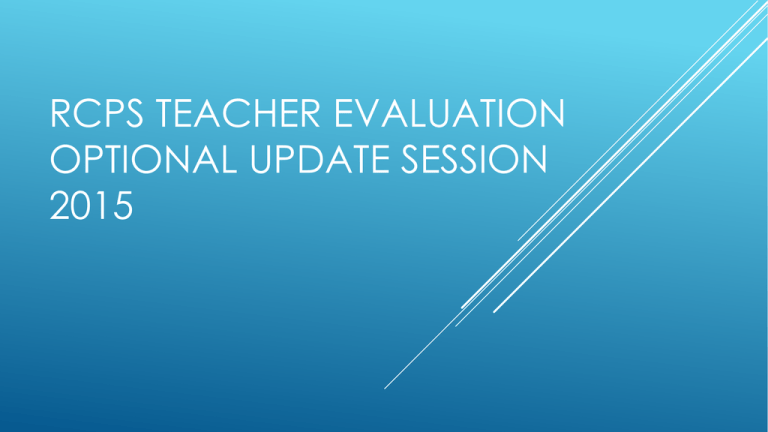
RCPS TEACHER EVALUATION OPTIONAL UPDATE SESSION 2015 Agenda Rationale for Update What’s new? And What’s the Same? Danielson Q and A Rationale for Update and Change • Our current system was created in 1998 • It remains a model for many • It was time for a deep review and update WHY UPDATE THE EVALUATION SYSTEM The Law Easy for you Vermont Update Levels “guidance” to widely agreed upon standards of proficiency meet the law requirement, not the Fed desired outcome Evaluation Lucy Team Members (past and Present) Davine Patricia Alonso Bianca McKeen Carol Trish Baker Marcell Jessica Glenn Jay Weber Olson Slenker Kerry Coarse Pam Reed http://rutlandcitypublicschools.org/# WHAT’S THE SAME? 1. Reference Documents I. II. RBT – Skillful Teacher NBPTS I. The purpose of the Rutland City Public Schools Evaluation and Professional Learning Process is to establish a structure to improve teaching and learning by creating a comprehensive understanding of a teacher’s work, by supporting Professional Learning, and by assuring accountability. 2. Purpose 3. Forms I. II. III. IV. V. Comprehensive Evaluation/Visitation Focused Growth Professional Development Peer Visitation Plan of Assistance What’s new? 1. Reference Documents I. Danielson’s Framework for Teaching Domain 1: Planning and Preparation 1a Demonstrating Knowledge of Content and Pedagogy 1b Demonstrating Knowledge of Students 1c Setting Instructional Outcomes 1d Demonstrating Knowledge of Resources 1e Designing Coherent Instruction 1f Designing Student Assessments Domain 2: Classroom Environment 2a Creating an Environment of Respect and Rapport 2b Establishing a Culture for Learning 2c Managing Classroom Procedures 2d Managing Student Behavior 2e Organizing Physical Space Domain 4: Professional Responsibilities 4a Reflecting on Teaching 4b Maintaining Accurate Records 4c Communicating with Families 4d Participating in a Professional Community 4e Growing and Developing Professionally 4f Showing Professionalism Domain 3: Instruction 3a Communicating With Students 3b Using Questioning and Discussion Techniques 3c Engaging Students in Learning 3d Using Assessment in Instruction 3e Demonstrating Flexibility and Responsiveness Levels of Proficiency Exemplary Proficient Developing Unsatisfactory/In Assistance (Probationary) * Refer to rubric for guidance need of Five Year Cycle Teacher Status Probationary Year 1 Comprehensive Evaluation Unsatisfactory/In Need of Assistance Plan of Assistance Developing Professional Learning Year 2 Year 3 Comprehensive Evaluation (At the conclusion of Year 2 teacher status determined by supervisor) Focused Growth Year 4 Year 5 Professional Learning Focused Growth Comprehensive Evaluation (Alternative to PL and FG Years – Peer Visitation) Proficient/Exemplary Professional Learning Focused Growth Comprehensive Evaluation (Alternative to PL and FG Years: Peer Visitation) RESOURCES Danielson Group • http://danielsongroup.org/framework/ Research for Better Teaching • http://rbteach.com/ NBPTS • http://www.nbpts.org/
